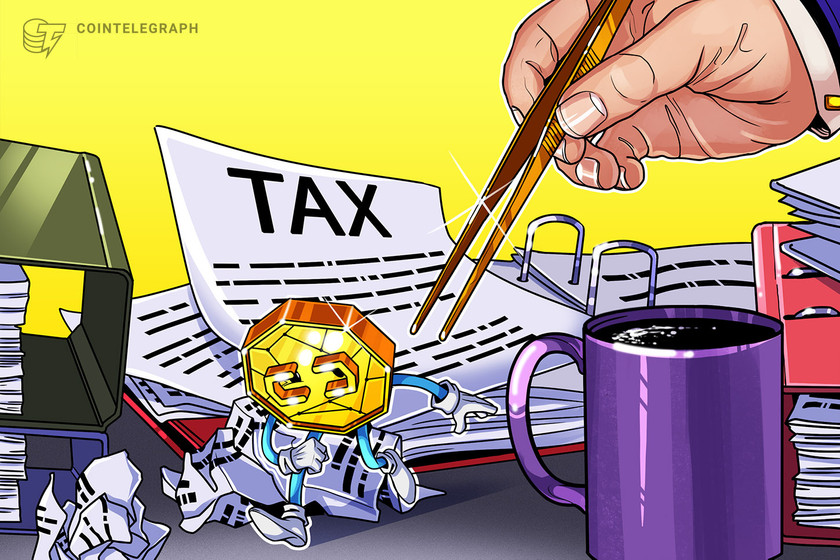
With the market falling off a cliff, there will be big losses to claim on your taxes, right? Well, let’s break it down in detail.
Crypto volatility is nerve-wracking, and it may not be over yet. The turmoil may make crypto investors and crypto-related businesses less enthusiastic than when prices seemed ever to be climbing. With the market falling off a cliff, there will be big losses to claim on your taxes, right? Not necessarily. As your United States dollars shake out in the digital world, it is worth asking whether there is any lemonade you can make by claiming losses on your taxes.
First, ask what happened from a tax viewpoint. If you’ve been trading and triggering big taxable gains, but then the floor drops out, first consider whether you can pay your taxes for the gains you have already triggered this year. Taxes are annual and generally based on a calendar year unless you have properly elected otherwise. Start with the proposition that each time you sell or exchange a cryptocurrency for cash, another cryptocurrency, or for goods or services, the transaction is considered a taxable event.
That is a result of the U.S. Internal Revenue Service’s shot heard ‘round the world in Notice 2014-21 when the IRS announced that crypto is property for tax purposes. Not currency, not securities, but property, so most any transaction means the IRS wants you to report gain or loss.
Related: Things to know (and fear) about new IRS crypto tax reporting
Before 2018, many crypto investors claimed that crypto-to-crypto exchanges were tax-free. But that argument was based on section 1031 of the tax code. It was a good argument, depending on the facts and the reporting. But that argument went away starting in 2018. Section 1031 of the tax code now says it applies to swaps of real estate only.

The IRS is auditing some pre-2018 crypto taxpayers and, so far, doesn’t appear to like the 1031 argument, even before 2018. The IRS even released one piece of guidance saying that tax-free crypto exchanges don’t work. We may need a court case to resolve it if the IRS pushes it that far. After all, it only applies to 2017 and prior years, so it’s of diminishing importance.

But regardless of whether you use crypto to pay someone, swap crypto, or outright sell it, do you have gains or losses? For most people, gains or losses would be subject to short-term or long-term capital gains/losses based on the basis (what you paid for the crypto), holding period, and the price at which the cryptocurrency was sold or exchanged. Yet some people may have ordinary gains or losses, and that topic is worth revisiting. Are you trading in crypto as a business?
Related: The major tax myths about cryptocurrency debunked
Most investors want long-term capital gains rates on gains if they buy and hold for more than a year. However, ordinary income treatment could be helpful for some, at least for losses. Securities traders can make a section 475 mark-to-market election under the tax code, but does that work for crypto? It’s not clear. To qualify, one must argue that the crypto constitutes securities or commodities.

The U.S. Securities and Exchange Commission has argued that some cryptocurrencies are securities, and there may be arguments for commodity characterization, too. It’s at least worth considering in some cases. However, in addition to establishing a position that a digital currency is a security or commodity, you would need to qualify as a trader in order to make a mark-to-market election. Whether one’s activities constitute “trading” as opposed to “investing” is a key issue in determining whether one is eligible to make a mark-to-market election.
The IRS lists details about who is a trader, usually characterized by high volume and short-term holding, although sometimes investing and trading might look rather similar.
If crypto turns out to be eligible for mark-to-market and if you qualify and elect it, you could mark to market your securities or commodities on the last business day of the year. Any gain or loss would be ordinary income, and gains, too. A benefit would be that the cumbersome process of tracking the date and time that each crypto was acquired and identifying the crypto you sold would not be required.
For most people, this election, if available, likely won’t make any sense, but as with so much else in the crypto tax world, much is uncertain. In the past, some drops in crypto value have been called a “flash crash,” an event in electronic securities markets where the withdrawal of stock orders rapidly amplifies price declines, and then quickly recovers. In the case of stock, the SEC voted on June 10, 2010, to enact rules to automatically stop trading on any stock in the S&P 500 whose price changes by more than 10% in any five-minute period.
A stop-loss order directs a broker to sell at the best price available if the stock reaches a specified price. Some people use the same idea with crypto. Some even want to buy the crypto back after a sale, and with crypto, you can do that. In contrast, with stock, there are wash sale rules, which restrict selling (to trigger losses) and buying back stock within 30 days. There are no wash sale rules for crypto, so you can sell your crypto and buy it right back without a 30-day waiting period.
This article is for general information purposes and is not intended to be and should not be taken as legal advice.
The views, thoughts and opinions expressed here are the author’s alone and do not necessarily reflect or represent the views and opinions of Cointelegraph.














